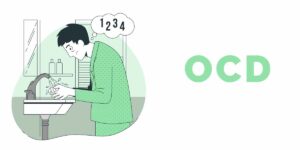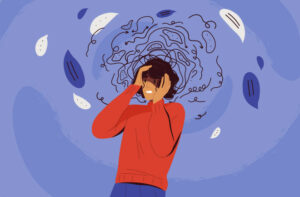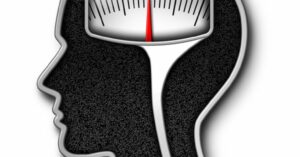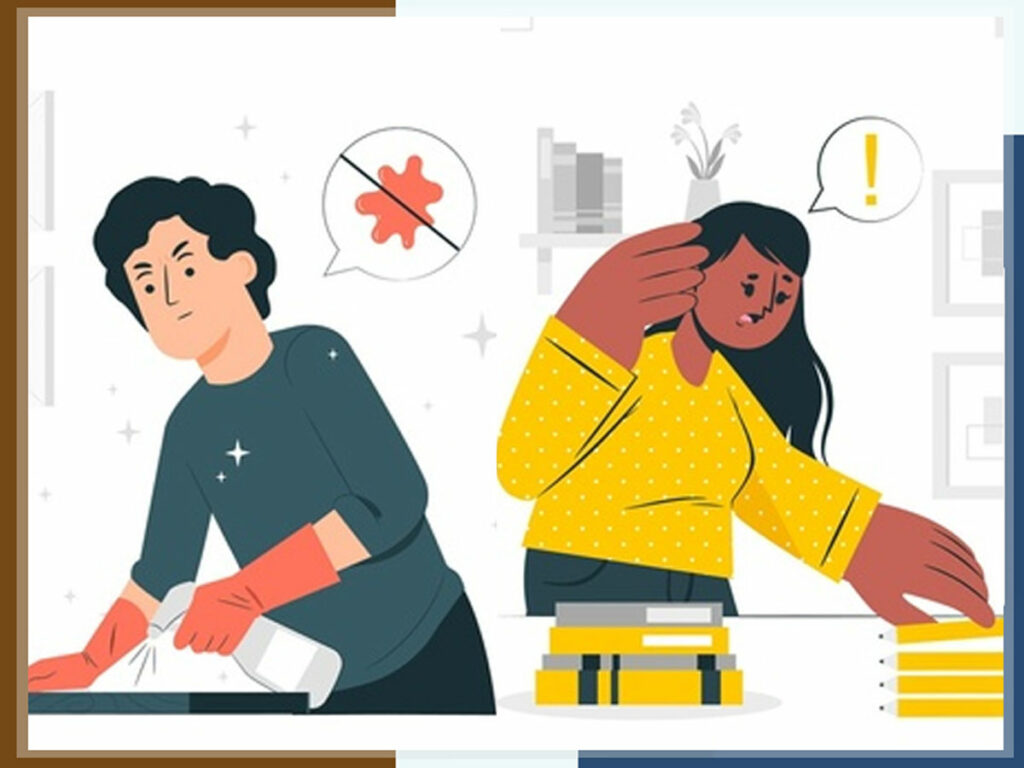Do you know someone who seems to have OCD? Maybe you even think that you might have OCD yourself. It’s important to know that there are a number of disorders that are often mistaken for OCD, and it’s crucial to get the right diagnosis. In this blog post, we will discuss 12 popular disorders that are often mistaken for OCD. We will provide information about each disorder and how it is different from OCD. If you think that you or someone you know might have OCD, be sure to consult a doctor for an accurate diagnosis.
Contents
- 1 Defining OCD
- 2 12 Disorders Similar To OCD
- 2.1 Anxiety Disorders
- 2.2 Autism Spectrum Disorder (ASD)
- 2.3 Attention-Deficit/Hyperactivity Disorder (ADHD)
- 2.4 Asperger’s Syndrome
- 2.5 Body Dysmorphic Disorder (BDD)
- 2.6 Body-Focused Repetitive Behaviors (BFRB)
- 2.7 Bipolar Disorder
- 2.8 Eating Disorders
- 2.9 Post Traumatic Stress Disorder (PTSD)
- 2.10 Narcissist Personality Disorder (NPD)
- 2.11 Tourette Syndrome
- 2.12 Schizophrenia
- 3 How To Know Which Disorder It Is?
- 4 Conclusion
Defining OCD

OCD, a popular acronym for “Obsessive-Compulsive Disorder”, is a mental health condition that affects millions of people worldwide. People with OCD have intrusive, unwanted thoughts (obsessions) that lead them to perform repetitive behaviors (compulsions). The goal of these compulsions is to reduce the anxiety caused by the obsessions. Unfortunately, the compulsions often end up causing more anxiety in the long run. People with OCD can spend hours each day engaged in compulsive behavior and thinking about their obsessions. This can lead to problems with work, school, and relationships. Some common obsessions include:
- Fear of dirt or contamination
- Intrusive thoughts about harm coming to oneself or others
- Excessive focus on order or symmetry
- Preoccupation with offensive or taboo thoughts
Some common compulsions include:
- Excessive hand washing
- Repeatedly checking that doors are locked or appliances are turned off
- Arranging objects in a certain order
- Counting, tapping or repeating words or phrases
As you can see, OCD can be a very debilitating condition. It’s important to get an accurate diagnosis so that you can begin treatment and start living a normal life.
12 Disorders Similar To OCD
It is very important to note that mental illnesses are a very complex and nuanced topic. There are a lot of signs and symptoms that may overlap, be similar, or even mimic each other. This can make it very difficult to get an accurate diagnosis.
Similarly, when it comes to OCD, there are a variety of other disorders that may be confused with it. In this section, we will discuss ten popular disorders that are often mistaken for OCD.
Anxiety Disorders

Anxiety is a normal emotion that we all experience from time to time. It’s what we feel when we’re faced with a challenging situation or when we’re worried about something. For most people, anxiety is manageable and doesn’t have a significant impact on day-to-day life. However, for some people, anxiety can be debilitating. When anxiety starts to interfere with work, school, or personal relationships, it may be an indication of an anxiety disorder. There are many different types of anxiety disorders, including:
- Generalized Anxiety Disorder (GAD): People with GAD experience chronic and excessive worry about a variety of topics, such as their health, work, family, or the future. They may have difficulty controlling their worry and may often feel tense, nervous, and on edge.
- Panic Disorder: People with panic disorder experience sudden and intense episodes of fear or anxiety. These episodes, called panic attacks, can be accompanied by physical symptoms such as a racing heart, shortness of breath, and sweating.
- Phobias: A phobia is an irrational fear of a specific object or situation. People with phobias may go to great lengths to avoid their triggers. For example, someone with a fear of flying may avoid traveling by airplane.
- Social Anxiety Disorder (SAD): Also known as social phobia, SAD is characterized by intense anxiety in social situations. People with SAD may worry about being embarrassed or judged by others. As a result, they may avoid social situations or feel very anxious when they are in them.
While some of the definitions may seem similar to OCD, it’s important to remember that OCD is characterized by obsessions and compulsions. Anxiety disorders, on the other hand, are characterized by excessive worry or fear. However, it’s not uncommon for people with anxiety disorders to also have OCD-like symptoms. This can make it very difficult to get an accurate diagnosis.
Autism Spectrum Disorder (ASD)
Autism is a neurological disorder that affects social interaction, communication, and behavior. People with ASD often have difficulty understanding the emotions of others and may be insensitive to the feelings of those around them. They may also have repetitive behaviors or restricted interests. While ASD can be diagnosed in children as young as 18 months, it’s often not diagnosed until later in childhood or adolescence.
It’s not uncommon for people with ASD to also have OCD-like symptoms. This is because both conditions share some similar features, such as repetitive behaviors and restricted interests. However, there are some key differences between the two disorders. For example, people with OCD generally have insight into their obsessions and compulsions and realize that they are excessive or unreasonable. People with ASD, on the other hand, may not be aware that their behaviors are unusual.
Attention-Deficit/Hyperactivity Disorder (ADHD)
ADHD is a neurological disorder that affects attention, impulsivity, and hyperactivity. People with ADHD often have difficulty paying attention and may be easily distracted. They may also have difficulty sitting still or may be constantly on the go. While ADHD can occur in children of all ages, it’s often not diagnosed until later in childhood or adolescence.
ADHD symptoms may sometimes manifest as behaviors that may seem like OCD. This is because both conditions share some similar features, such as repetitive behaviors and distractibility. However, there are some key differences between the two disorders. For example, people with OCD generally have more intense and persistent anxiety than those with ADHD. Additionally, people with OCD tend to have very specific and defined fears, whereas people with ADHD may be more likely to take risks.
Asperger’s Syndrome
Asperger’s syndrome is a form of ASD. People with Asperger’s syndrome often have difficulty understanding the emotions of others and may be insensitive to the feelings of those around them. They may also have repetitive behaviors or restricted interests. While Asperger’s syndrome can be diagnosed in children as young as 18 months, it’s often not diagnosed until later in childhood or adolescence.
Like ASD, Asperger’s syndrome shares some similar features with OCD, such as repetitive behaviors and restricted interests. However, there are some key differences between the two disorders. For example, people with OCD generally have insight into their obsessions and compulsions and realize that they are excessive or unreasonable. People with Asperger’s syndrome, on the other hand, may not be aware that their behaviors are unusual.
Moreover, people with Asperger’s syndrome often have difficulty understanding and responding to the emotions of others, whereas people with OCD tend to be very aware of their own emotions.
Body Dysmorphic Disorder (BDD)

Body dysmorphic disorder, or BDD, is a mental disorder that causes a person to obsess over one or more perceived defects in their appearance. People with BDD may spend hours comparing themselves to others or looking in mirrors. They may also avoid social situations for fear of being ridiculed or stared at.
BDD can be difficult to distinguish from OCD because both disorders involve obsessions and compulsions. However, people with OCD tend to focus on symmetry and orderliness, while people with BDD are fixated on a particular body part or feature. This may seem parallel, but the key difference is that people with OCD are aware that their thoughts are irrational, while people with BDD believe that their thoughts are accurate.
Moreover, people with BDD are more likely to seek out cosmetic surgery or other treatments to correct their perceived flaws. People with OCD typically do not want to change their appearance, but rather want to rid themselves of their unwanted thoughts.
Body-Focused Repetitive Behaviors (BFRB)
As the name suggests, Body-Focused Repetitive Behaviors (BFRBs) are a set of disorders that revolve around repetitive behaviors focused on one’s body. This can manifest in various ways, such as:
- Hair pulling (trichotillomania)
- Skin picking (dermatillomania)
- Nail biting (onychophagia)
These disorders often share similar characteristics with OCD, such as:
- An intense urge to perform the behavior
- Feeling relief or pleasure after performing the behavior
- The behaviors interfering with daily life and causing distress.
However, there are some key differences between BFRBs and OCD. For one, BFRBs tend to be more focused on physical sensations, while OCD is more mental. Additionally, BFRBs are not typically driven by anxiety or fear like OCD can be.
It has also been reported that people who engage in BFRBs extract feelings of pleasure or satisfaction, while people with OCD often report feeling anxiety, distress, or fear because of their symptoms.
Bipolar Disorder
Bipolar disorder is a mood disorder that is characterized by episodes of mania and depression. People with bipolar disorder often experience periods of high energy, followed by periods of low energy.
Bipolar disorder can be mistaken for OCD because both conditions involve mood swings. However, the two disorders are different in that people with bipolar disorder do not usually experience the same level of anxiety as people with OCD. Moreover, bipolar disorder is more likely to involve periods of impulsive behavior, whereas OCD is characterized by repetitive behaviors that a person feels compelled to do.
The main difference between OCD and bipolar disorder is also marked by the presence of mania or hypomania. People with OCD do not experience these phases of abnormally high energy and mood. However, both disorders can cause people to have difficulty functioning at work or school and to have strained relationships.
Eating Disorders
Eating disorders are a group of mental disorders that are characterized by abnormal eating habits. These can include:

- Anorexia nervosa: A disorder characterized by an intense fear of gaining weight and a refusal to eat.
- Bulimia nervosa: A disorder characterized by binge eating followed by purging (self-induced vomiting, use of laxatives, or excessive exercise).
- Binge eating disorder: A disorder characterized by binge eating without purging.
People with eating disorders often have similar symptoms to people with OCD, such as obsessions with food and body image.
However, there are some key differences between the two groups. For example, people with OCD are generally not fixated on being thin, while people with anorexia nervosa typically are. People with OCD may also worry about gaining weight, but they are more focused on the consequences of overeating (e.g., becoming sick) than on their appearance.
Moreover, people with eating disorders often engage in behaviors to prevent themselves from gaining weight, such as restricting their food intake or purging after meals. People with OCD typically do not engage in these types of behaviors.
Post Traumatic Stress Disorder (PTSD)
PTSD, a popular acronym for post-traumatic stress disorder, is a mental disorder that can develop after a person is exposed to a traumatic event, such as sexual assault, warfare, or natural disasters. Symptoms of PTSD include flashbacks, nightmares, anxiety, depression, and feeling isolated. While PTSD and OCD share some similarities, such as intrusive thoughts, there are key differences between the two disorders.
First and foremost, with PTSD the focus is on the trauma itself while in OCD the focus is on the person’s reaction to their thoughts. Secondly, people with PTSD often avoid anything that reminds them of the trauma while people with OCD often seek out things that remind them of their obsessions. Finally, people with PTSD are more likely to experience dissociation (feeling detached from oneself) while people with OCD are more likely to experience compulsions (repetitive behaviors or mental acts that the person feels driven to perform in order to ease their anxiety).
Narcissist Personality Disorder (NPD)

NPD, also known as Narcissistic Personality Disorder, is a mental disorder that is characterized by an inflated sense of self-importance, a need for admiration, and a lack of empathy. People with NPD often believe they are better than others and have difficulty understanding the perspectives of others.
NPD can be mistaken for OCD because both disorders involve obsessive thinking. However, there are some key differences between the two conditions. For example, people with NPD are have an obsession with themselves while people with OCD have an obsession with their thoughts. Moreover, people with NPD often engage in risky behaviors, such as spending excessively or having multiple sexual partners, while people with OCD typically avoid anything that triggers their anxiety.
Tourette Syndrome
Tourette’s syndrome, also known as Gilles de la Tourette’s syndrome, is a neurological disorder that causes tics – involuntary, rapid, sudden movements or vocalizations. Tourette’s is often mistaken for OCD because both conditions involve repetitive behaviors. However, people with Tourette’s do not necessarily have obsessive thoughts. In fact, many people with Tourettes are completely unaware of their tics and do not feel the need to perform them. Moreover, Tourette’s tics are often preceded by an urge or sensation, known as a premonitory urge, whereas OCD compulsions do not have a definite source.
Schizophrenia
Schizophrenia is a serious mental illness that causes a person to lose touch with reality. People with schizophrenia may hear voices or see things that are not there. They may believe other people are trying to hurt them. They may also have trouble thinking clearly, managing their emotions, and making decisions.
The key difference in symptoms between OCD and schizophrenia is that people with OCD are aware that their thoughts and behaviors are irrational, but they cannot stop them. People with schizophrenia do not have this insight. Instead, they may believe that their delusions or hallucinations are real.
These are some of the most popular disorders that are often mistaken for OCD. If you or someone you know is struggling with OCD or any of the above disorders, it is important to seek professional help. Mental illnesses can be debilitating, but with treatment, many people are able to lead happy and healthy lives.
How To Know Which Disorder It Is?

There are many disorders that share similar characteristics to OCD, which can make it difficult to diagnose. For this reason, it is important to consult with a mental health professional. There are a variety of professionals such as psychologists, psychiatrists, and therapists who can help you determine if you have OCD or a different disorder.
The most common diagnostic tool for OCD as well as other disorders to similar OCD is the DSM-5, also popular by the name of Diagnostic and Statistical Manual of Mental Disorders. The fifth edition is the most recent one published by the American Psychiatric Association in 2013. This manual provides essential criteria for diagnosing various mental disorders, including OCD. It consists of five different sections, called “axes”. The first three axes are for describing the major symptoms of a disorder. The fourth axis is for listing any associated disorders that may be co-occurring with the primary diagnosis. The fifth and final axis is for specifying the severity of the disorder.
A licensed and trained mental health professional have the ability to diagnose you with any disorders by using the DSM-5. If you suspect that you or someone close to you is exhibiting any symptoms, reach out to a professional for help. They will assess and diagnose you, and also provide assistance for tailoring a suitable treatment plan.
Conclusion
In conclusion, there are a number mental disorders similar to OCD. The overlapping and confusing nature of the symptoms of these disorders can make it hard to correctly understand and diagnose the right disorder. These can have a significant impact on a person’s life if left untreated. If you think you may have OCD or any other mental disorder, please seek professional help. With the right diagnosis and treatment, you can live a happy and healthy life.
If you are searching for a reliable, affordable, and effective source for seeking help for OCD or similar issues, reach out to Therapy Mantra. We are a team of highly trained mental health professionals offering online therapy services. Contact us today to learn more about how we can help you or your loved ones. Visit our website to book an online therapy or you may also download our free OCD treatment app on Android or iOS for more information.


